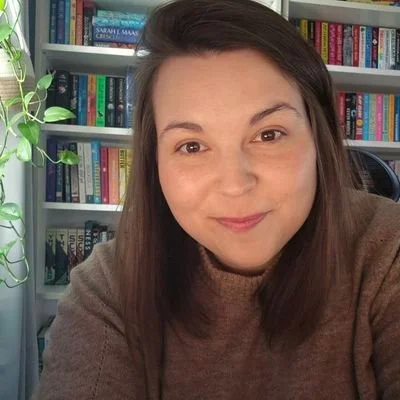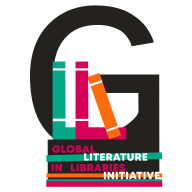Review by Helen Jones
Please be advised that this review refers to discrimination and sexual assault.

Ducks, an autobiographical graphic novel by Kate Beaton, starts off with a simple, coming-of-age premise. Fresh out of university, twenty-one-year-old Katie heads off from her home on a quiet, windswept island off the coast of Nova Scotia to travel to the oil sands of mid-western Canada, with the idea of making quick money to pay off her student loan. However, the narrative quickly takes a dark turn, undermining the image of Canada as a progressive country, and taking us to its dirty underbelly, where both the workers and the land are exploited for money.
Each chapter focuses on Katie’s time at a different oil sand mining complex and starts with a double-page spread depicting the industrial landscape. Each new set of characters is also depicted in an introductory page, highlighting the transitory nature of working across the oil sands, as Katie moves from site to site, forming short-lived friendships. This is a tough, hyper-masculine world. Katie is given menial jobs, such as working in the warehouse and doling out tools and PPE to the mainly male workers. She is met with casual misogyny, rarely called by her name but addressed as ‘cutie’ or ‘little miss’. With the constant male attention, Katie describes how it is like living in a ‘fish bowl’, and when she stands up for herself, she is told to ‘learn to take a joke’ and ‘get a thicker skin’. As the situation hits its lowest, a sexual assault is viewed by both her male and female coworkers as being Katie’s fault, due to her being ‘loaded’. This is deftly handled by Beaton, with the artwork encapsulating the trauma.
The toxic masculinity is partially a product of the toxic environment. This is a liminal space on the edges of society, a borderland of people trying to make enough to get by. Drinking and drug taking are common, and the work is long and hard, shifts lasting for twelve hours, day or night. There is a pervading sense of collective loneliness throughout the novel; the workers are away from their families, summed up by a series of images where Katie fails to put up and decorate a mini-Christmas tree, as she spends the holiday season working, thousands of miles from home.
Throughout the graphic novel, Kate Beaton uses a limited pallet of black, greys and white, which emphasises the oppressive atmosphere of the oil sands and downplays the natural world. Against images of boreal forests, buffalo, and the aurora borealis, the characters discuss toxic air and hack up dirt balls after work. In addition, maps and images of the sprawling oil sands give a sense of the vastness of both Canada and the giant and destructive oil sand operations. The titular ducks are revealed to be hundreds of migrating fowl that have drowned in a lake of toxic sludge, a byproduct of the oil excavation, and a metaphor, perhaps, for how the oil sands drag down and slowly damage the humanity of those who work there.
Most suited to mature YA readers, this is a bleak but beautiful graphic novel, and while harrowing it is also humorous in its storytelling. Kate Beaton has artfully created a rousing call for the need for humans to connect with empathy and care to those around us and to the natural world in which we live.
Ducks
Written and illustrated by Kate Beaton
2022, Penguin Random House
ISBN: 9781787330139
Reviews: The Guardian, Kirkus, Publishers Weekly, Library Journal
Awards: Winner of the Eisner Awards for Best Memoir and Best Writer/Artist

Helen Jones is a PhD student at Goldsmiths University, conducting an action research project to explore children’s comics making, extra-curricular spaces for learning and the use of comics in education. Helen co-edited and contributed to the book Children’s Literature In Action (2022), a publication which sets out to showcase outstanding examples of action research projects produced by the students taking the MA Children’s Literature at Goldsmiths, University of London. Helen has published her work in both academic and non-academic publications spanning both comics studies and educational studies. Helen is also a lecturer in Primary Education at the Institute of Education, UCL’s Faculty of Education and Society. She has three children who are all enthusiastic readers and makers of comics and graphic novels.
—

GLLI’s 2024 International YA Literature Month has been curated by Dr Emily Corbett. She is a lecturer in children’s and young adult literature at Goldsmiths, University of London, where she leads the MA Children’s Literature: Theoretical Approaches to Children’s and Young Adult Literature programme. Her research focuses on the growth and development of YA from literary, publishing, and cultural perspectives. She is also General Editor of The International Journal of Young Adult Literature and was founding Vice President of the YA Studies Association. Her monograph, In Transition: Young Adult Literature and Transgender Representation (2024), has just been published by the University Press of Mississippi. You can find her contact details on her institutional website and connect with her on Twitter and Instagram via @DrEmilyCorbett.
Opinions expressed in posts on this site are the individual author’s and are not indicative of the views of Global Literature in Libraries Initiative.

We bought ourselves a copy as soon as released.
It starts with a moral dilemma: would you do this to pay off your college debt? And the tangles get worse from there.
The reviewer mentions casual misogyny, but it is relentless, and it digs deep, so that even afterwards it still plays out.
That, on top of the ecological damage they were unwittingly? party to.
A book of many, many levels.
LikeLike